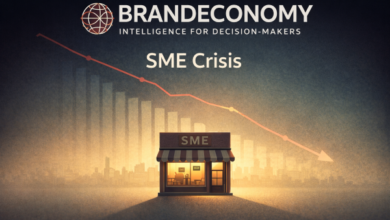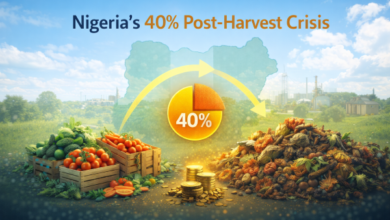Trump threatens 100% tariff on foreign films: a new blockbuster in America’s protectionist script

In another dramatic twist to President Donald Trump’s escalating trade doctrine, the U.S. leader has unveiled plans to slap a 100% tariff on all foreign-produced films imported into the American market—a move that, if implemented, could send seismic shocks across the global film industry.
Posting on his Truth Social platform, President Trump lamented that “the Movie Industry in America is DYING a very fast death”, alleging that foreign nations are poaching U.S. filmmakers and studios through a mix of tax incentives, subsidies, and low-cost production environments.
Calling the trend a “National Security threat”, Trump declared that he was authorising the U.S. Department of Commerce and the U.S. Trade Representative to initiate processes to “institute a 100% tariff on all Movies coming into our Country that are produced in Foreign Lands.” His rallying cry: “We want movies made in America, again.”
BEYOND HOLLYWOOD: WHAT TRUMP’S TARIFFS REALLY MEAN
While Trump’s rhetoric has always leaned heavy on nationalist economic policy, the latest target—foreign films—suggests a broadening of his administration’s protectionist lens. From steel to semiconductors, and now to cinema, the Trump doctrine appears bent on reclaiming control of American cultural production as part of a wider economic security framework.
However, the practicalities of implementing a 100% tariff on “foreign films” remain unclear:
- What qualifies as a foreign film? Many “Hollywood” blockbusters are partially filmed abroad, co-financed by global studios, or rely on VFX and post-production teams in Canada, the UK, New Zealand, and India.
- How would distribution companies be affected? Streaming giants like Netflix, Disney+, and Amazon Prime host a significant share of international content.
- Would tariffs be passed on to consumers? Ticket prices and subscription fees could spike, ultimately burdening the American viewer rather than shielding domestic industry.
THE ECONOMICS OF FILM FLIGHT
The globalisation of film production over the past two decades is driven largely by cost savings and tax incentives. Countries such as Canada, the UK, New Zealand, and South Korea offer robust subsidies, skilled labour, and streamlined regulations.
In fact, many U.S. blockbusters that fill domestic cinemas are technically “foreign-produced”—filmed on location in Budapest, Vancouver, or Cape Town, with significant portions of post-production handled by non-U.S. studios.
Hollywood insiders argue that foreign production isn’t a betrayal—it’s a business necessity in today’s highly competitive content economy.
POLITICAL THEATRE OR STRATEGIC POLICY?
While Trump’s statement may read like economic patriotism, some analysts interpret it as part of a broader messaging campaign—a signal to his base that he’s committed to preserving American jobs, culture, and dominance.
“This could be more bark than bite,” one entertainment lawyer told BRANDECONOMY. “Unless you clearly define ‘foreign film’ and have a mechanism to audit and enforce such tariffs, it’s largely symbolic. But symbols matter—especially in an election cycle.”
CALIFORNIA RESPONDS: HOMEGROWN SOLUTIONS
Interestingly, California Governor Gavin Newsom is already working to counter the offshore drift. In 2024, Newsom proposed a massive investment in entertainment industry tax credits, aiming to reclaim projects lured away by other states and nations.
Analysts say this carrot approach stands in contrast to Trump’s stick—focusing on making the U.S. competitive, rather than punishing the rest of the world.
BUSINESS IMPLICATIONS FOR STUDIOS AND STREAMING PLATFORMS
If the proposed tariff were enacted, it could have ripple effects for:
- Film distributors (e.g., Universal, Sony): facing potential cost hikes or reduced access to global content.
- Streaming services: potentially curbing acquisition of international content or rerouting production strategies.
- Cinemas and audiences: facing fewer international titles, higher costs, and narrower viewing options.
- Global co-productions: risking delays, reclassifications, or financial penalties if deemed “foreign.”
The move could also provoke retaliatory tariffs from other countries, squeezing American studios that rely heavily on overseas box offices for revenue.
FINAL TAKE: CULTURE AS COMMERCE, CONTENT AS CONTROL
Trump’s latest move underscores a growing global trend where culture, commerce, and geopolitics are increasingly intertwined. In a world where soft power equals strategic influence, cinema has become more than entertainment—it’s an economic weapon.
At BRANDECONOMY, we see this not just as a film industry headline, but as a signal of how deeply economic nationalism now runs, even into the heart of creative industries.
Will this latest “tariff thriller” end with a trade war sequel, or fade into rhetorical fiction?
Only time—and the box office—will tell.
🎬 BRANDECONOMY Business Brief: Trump’s proposed tariff isn’t just a policy—it’s a plot twist in the ongoing story of American capitalism vs globalisation. Stay tuned.












